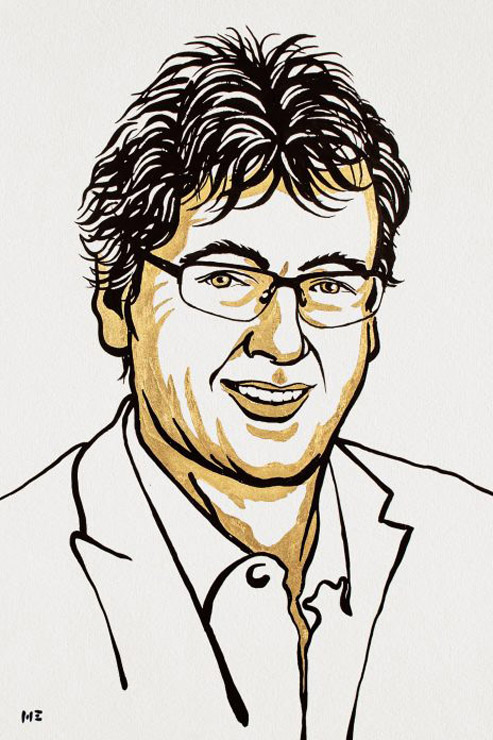Research - Pioneering tool to build molecules earns two MSCA supervisors the Nobel Prize in Chemistry 2021
Newsletter

Benjamin List and David MacMillan, both of whom have participated in MSCA Individual Fellowship projects, were awarded the Chemistry Nobel Prize for pioneering research into the construction of molecules.
Until 2000, all catalysts discovered belonged to one of two groups: metals or enzymes. However, they have their issues. For example, some metal catalysts are very sensitive to oxygen and water, and not very environmentally friendly. In addition, they are problematic if they end up in pharmaceuticals.
Catalysts are substances that can speed up chemical reactions by lowering the amount of energy needed to get them going. They are key to many chemical processes. Scientists use them for a broad range of reasons, from constructing molecules and making plastics to storing energy in batteries and combating the spread of disease.
Taking molecular construction to new heights
It was then that List and MacMillan came up with a totally new way of thinking for how to put together chemical molecules. Even though enzymes contain hundreds of amino acids or proteins, they were able to demonstrate that a single organic molecule can act as a catalyst. As a result, they developed asymmetric organocatalysis – a method that uses small organic molecules as catalysts instead of enzymes or metals.
What is fascinating is that the two laureates’ findings were achieved independently of one another. List didn’t initially know that his colleague was working on the same subject.
In the 20th Century, there were some reports of organic molecules acting as asymmetric catalysts, but with varied degrees of success. These examples were isolated. Nobody considered developing a complete methodology or understanding of how they work.
Society already significantly benefiting
The innovative catalysis technique is an efficient, accurate, inexpensive, speedy and environmentally friendly way to develop new molecules. This ground-breaking method has greatly influenced pharmaceutical research and made chemical processes more eco-friendly and cost-efficient. The novel toolbox has also helped in developing plastic, perfume and flavoursome food. In fact, catalysis contributes 35% of the world’s total GDP.
Over the past two decades, the new catalysts have been used in a variety of ways, including for creating new pharmaceuticals and making molecules that capture light in solar cells. What’s more, List and MacMillan’s work has helped develop a drug for high blood pressure and streamline the production of drugs such as paroxetine (Seroxat) that treats depression and oseltamivir (Tamiflu) used to treat respiratory infections.

The scientific community is wondering out loud about asymmetric organocatalysis, and why such a seemingly simple idea was overlooked for so long. “This concept for catalysis is as simple as it is ingenious, and the fact is that many people have wondered why we didn’t think of it earlier,” says Johan Åqvist, chair of the Nobel Committee for Chemistry, in a press release on the ‘The Nobel Prize’ website. “I’m an organic chemist, I’m working with small organic molecules every day, but I didn’t think of it!” notes Peter Somfai, member of the Nobel Committee, in an interview. He referred to the tool as “a game changer.”
Mariya Gabriel - European Commissioner for Innovation, Research, Culture, Education and Youth - commented in a European Research Council press release: “Another happy day for European science! … Another great mind, Benjamin List, wins the Nobel Prize in Chemistry … Congratulations to both laureates on winning one of the highest accolades in the world of science.”
Benjamin List, Director at Germany’s Max Planck Institute of Coal Research, and David MacMillan, Professor of Chemistry at Princeton University, United States, are currently supervising the MSCA projects SusCat and PhotoChemBio, respectively.
Jerry Stamatelos
MCAA Editorial Team